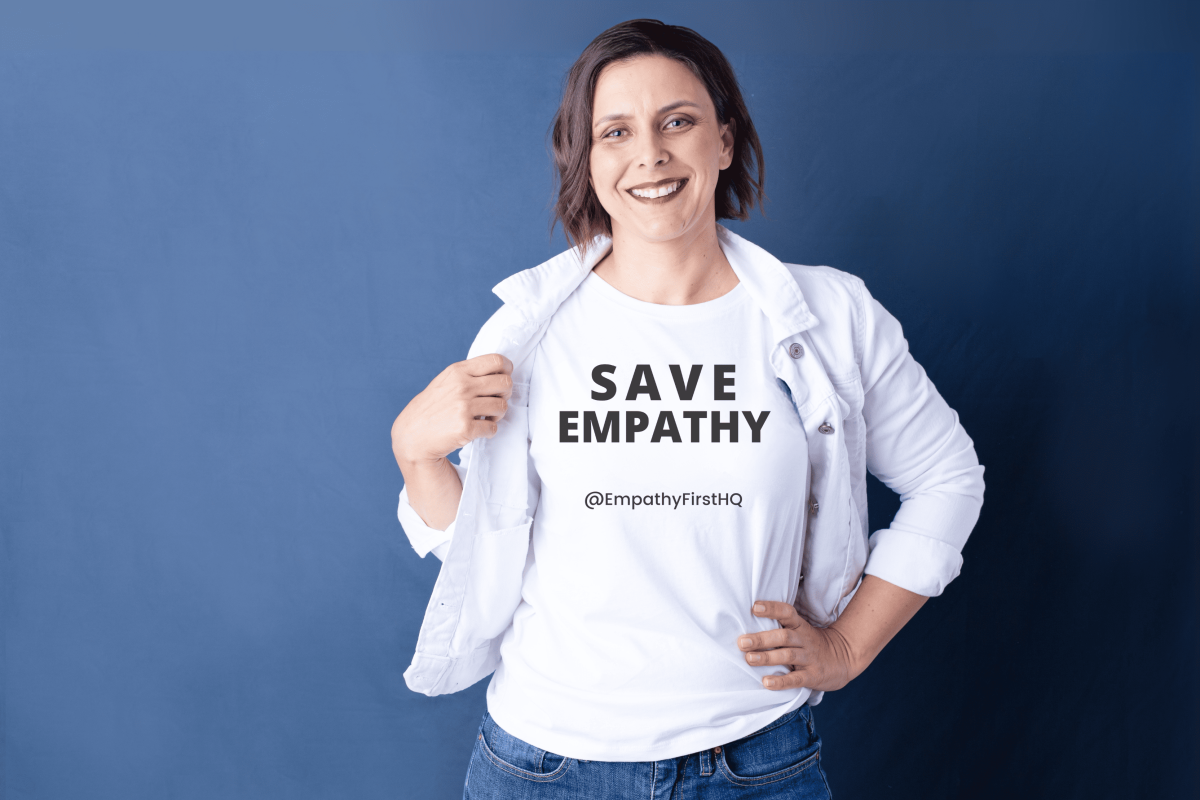By Leanne Butterworth
If you had told me ten years ago that I’d be standing on a TEDx stage talking about my experience of postnatal depression—or teaching CEOs how to connect more meaningfully with their staff—I might’ve smiled politely and considered it a pipedream. At the time, I was mothering my two young children full time and had just started working part time with a mental health charity. I had a thousand tabs open in my brain and I was falling apart.
Disconnection, frustration, anger and self doubt were quietly eating away at me. I was supposed to be grateful, high-functioning, “fine.” People around me had the best intentions when they said things like, “Cherish these moments” or “We all got through it”. But I wasn’t fine. I didn’t feel heard. I felt invisible, unsupported, alone. Because I was told this was a ‘normal part of motherhood’, I had no idea that I needed help.
It wasn’t until my GP showed me healthy empathy—not sympathy, not saviourism, not “just be positive”—that things began to change. She saw my struggles. She listened. She created a space where I felt safe enough to share my truth. She identified that I had late-diagnosed postnatal depression and supported me to get the help that I needed. That experience not only helped me recover—it sparked something that would become my life’s work.
That spark fuels Empathy First to this day
The Birth of a Business
Empathy First wasn’t born out of strategy—it was born out of necessity. I saw firsthand how a lack of empathy at work, in leadership, and even in healthcare could have devastating consequences. I also saw how genuine, skilled healthy empathy could create healing, innovation, connection, and resilience. But most people were still treating empathy like a personality trait—or worse, a “soft skill” to be dismissed.
At the start of 2020, through the culmination of a mental health Virtual Reality project and postgraduate study in social impact, I created Empathy First as a social enterprise dedicated to teaching empathy as a practical, learnable, and essential skill for leadership and impact. We work with organisations, government, and educators to help leaders develop healthy empathy—the kind that creates safer teams, better decisions, stronger cultures, and ultimately, better outcomes for everyone involved.
Empathy First’s work is rooted in science, backed by psychology, and delivered through workshops, keynotes, coaching, and consulting. We don’t do lovey-dovey fluff or bandaid solutions. We equip people with real skills and strategies to listen deeply, ask better questions, challenge their own unconscious biases, and lead with compassion and courage.
Challenges Along the Way
In the early days, I struggled with imposter syndrome. Who was I to teach empathy when it’s a skill that I, myself have had to learn? But I came to understand that my vulnerability was my strength. It meant I wasn’t just teaching theory—I was living it. I knew what it felt like to be invisible, unheard, and unsupported. And I knew the power of being truly seen.
Another major challenge has been changing perceptions. Many people still hear “empathy” and think “weakness.” Or they confuse it with over-caring, people-pleasing, or emotional overwhelm. That’s why I focus on healthy empathy—the kind that includes boundaries, clarity, emotional literacy, and accountability. It’s not about fixing people or absorbing their emotions. It’s about being present, listening, and making people feel heard, valued, visible and safe.
And, of course, there’s the ever-present challenge of funding. As a social enterprise, I have to balance advocacy with income, but with every workshop, every talk, every message from someone who says, “I needed that,” or “I can do that” I’m reminded why I do this.
Why It Matters More Than Ever
Empathy isn’t just nice to have—it’s a future skill. According to the World Economic Forum, empathy, emotional intelligence, and active listening are critical leadership traits for the next decade. In a world facing burnout, polarisation, staff turnover and rapid change, the leaders who succeed will be those who can connect—not just command.
That’s why I’m passionate about working with leaders, teams, teachers, and changemakers to put empathy first—before assumptions, before ego, before action. When we do, we unlock cultures that are not only more human, but also more productive, creative, and resilient.
What’s Next
Looking ahead, I have bold plans. I want to take Empathy First training to workplaces across Australia—especially regional and frontline sectors where disconnection and burnout are rampant. I’m working on launching new online leadership programs, conducting workplace research, and building an evidence base to advocate for organisation-level change.
In the meantime, I’ll keep doing what I do best—helping people create spaces of presence and connection. Because when we lead with empathy, we don’t just change organisations. We change lives.
